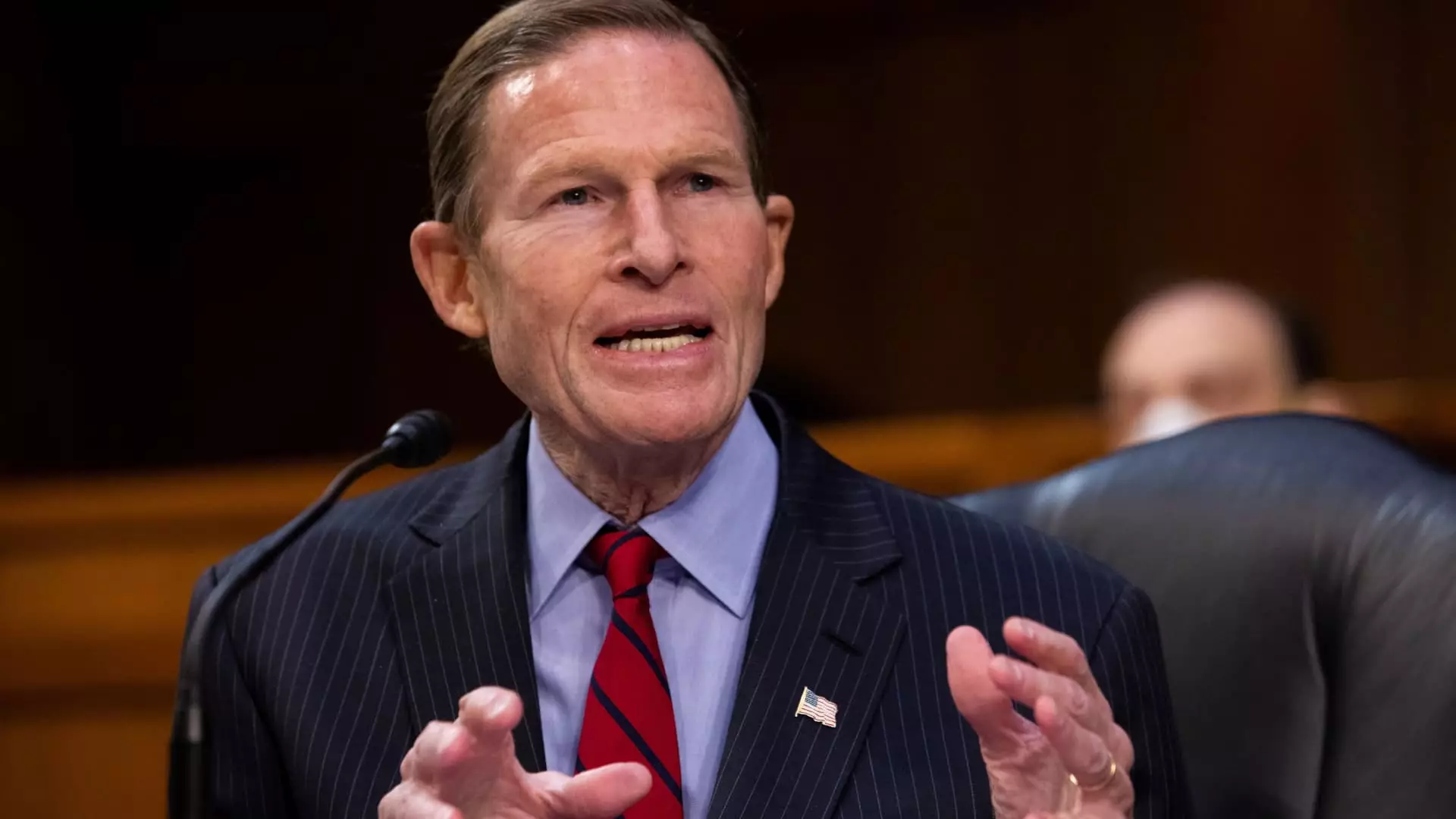The financial landscape seems headed for a seismic shift under the auspices of social media mogul Elon Musk, particularly with his latest enterprise—X Money. As a center-left liberal, I feel compelled to voice my unease regarding the intersection of intensified financial services and a known purveyor of misinformation and malfeasance. This precarious situation has drawn the attention of influential figures such as Senator Richard Blumenthal, who recently pressed Visa for transparency surrounding their collaborative venture with Musk’s social media platform, X. Given the many risks associated with this partnership, it’s crucial to dissect these concerns.
Musk: A Disquieting Influence on Financial Regulation
Elon Musk’s dual role as both Chairman of X and an architect of government efficiency raises uncomfortable questions about the implications of his leadership. Critics, including Blumenthal, assert that Musk has systematically weakened the Consumer Financial Protection Bureau (CFPB), a key regulatory body responsible for safeguarding consumers from predatory financial practices. With the CFPB’s capabilities diminished, Musk has effectively maneuvered to sidestep stringent oversights that would ordinarily apply to a financial service. The idea that a platform riddled with scams and misinformation can faithfully manage financial transactions is nothing short of absurd, and yet here we are, drawn into another scenario that warrants serious scrutiny.
Visa’s Dilemma: Participating in a Legal Minefield
As it stands, Visa is in a perilous position, extending its services into uncharted territory filled with inherent risks. The partnership with X could serve as a launchpad for Visa to revolutionize digital payment systems or it could plunge the company into a quagmire of legal backlash. Blumenthal’s request for comprehensive documentation related to Visa’s role in processing payments through X isn’t merely prudent—it’s essential. Visa, being the world’s largest credit card network, carries a legal obligation to ensure that its systems remain free from financial crimes such as money laundering and fraud. The idea that Visa might get entangled in the very scams they are supposed to prevent is unsettling.
The Culture of Mistrust Embedded in X
Trust—arguably the cornerstone of any financial service—is dangerously lacking in Musk’s version of X. With the platform already grappling with issues like bots and hate speech, how can it expect to fend off financial scams? Blumenthal’s doubts about X’s capacity to safeguard its users from fraud are well-founded. This isn’t just another case of regulatory overreach; it’s a wake-up call for consumers. Merging social media with financial transactions inevitably opens the door to myriad new vulnerabilities that have yet to be addressed adequately.
The Ethics of Data Access and Consumer Protection
An alarming development highlighted in the discussions is the access granted by Musk’s Department of Government Efficiency to CFPB data systems. This raises ethical questions about the treatment of consumer information. If the very individuals tasked with overseeing financial protection are being sidelined, how can everyday users be expected to trust in a financial service originating from a platform infamously known for its disruptions? It is not merely a matter of regulatory compliance; there exists a moral imperative to prioritize consumer protection.
The Implications of Musk’s Business Ventures
Musk’s audacity in venturing into financial services, with a platform already notorious for its culture of misinformation, presents a striking contradiction about what responsibility looks like in today’s digital universe. The intermingling of social media and finance could lead to unprecedented levels of data harvesting, manipulation, and economic exploitation. This merger of businesses may embolden entrepreneurs but, concurrently, weighs heavily on the ethical responsibilities that companies like Visa desperately need to uphold.
The Call for Vigilance and Transparency
Senator Blumenthal’s proactive stance in demanding a thorough examination of the deal reflects a growing movement toward greater vigilance in financial regulations. It serves as a reminder that corporate transparency is not optional; it is an ethical demand in the face of rapid technological advancement. As consumers stand on the precipice of a transformative financial paradigm, we must demand oversight and accountability. The intersection of finance and social media should not become a Wild West scenario, where profits overshadow principles.
In these turbulent times, we must advocate for a safe, ethical, and effective financial landscape, recognizing that political accountability and consumer protection should reign supreme over corporate interests.


Leave a Reply